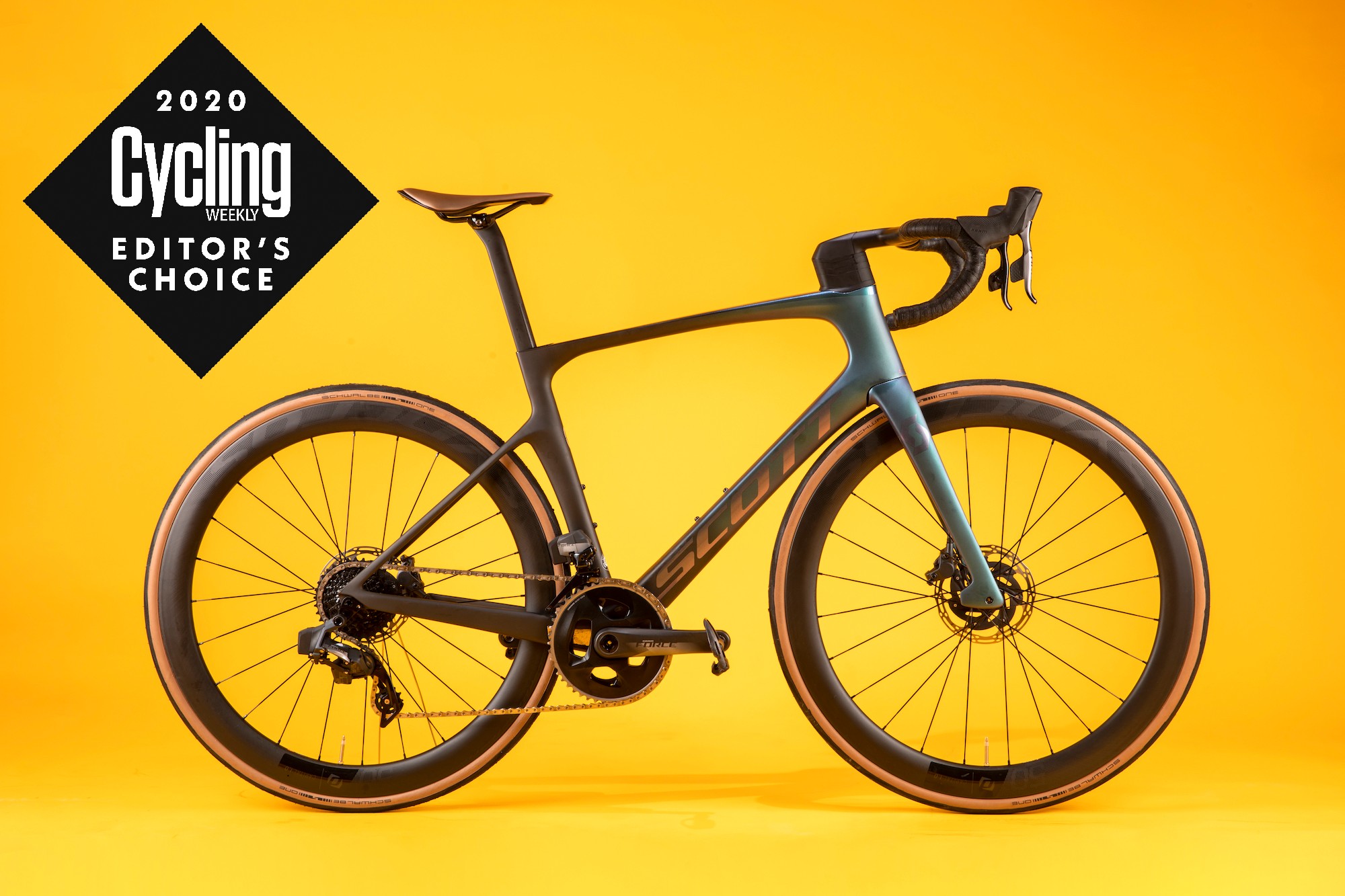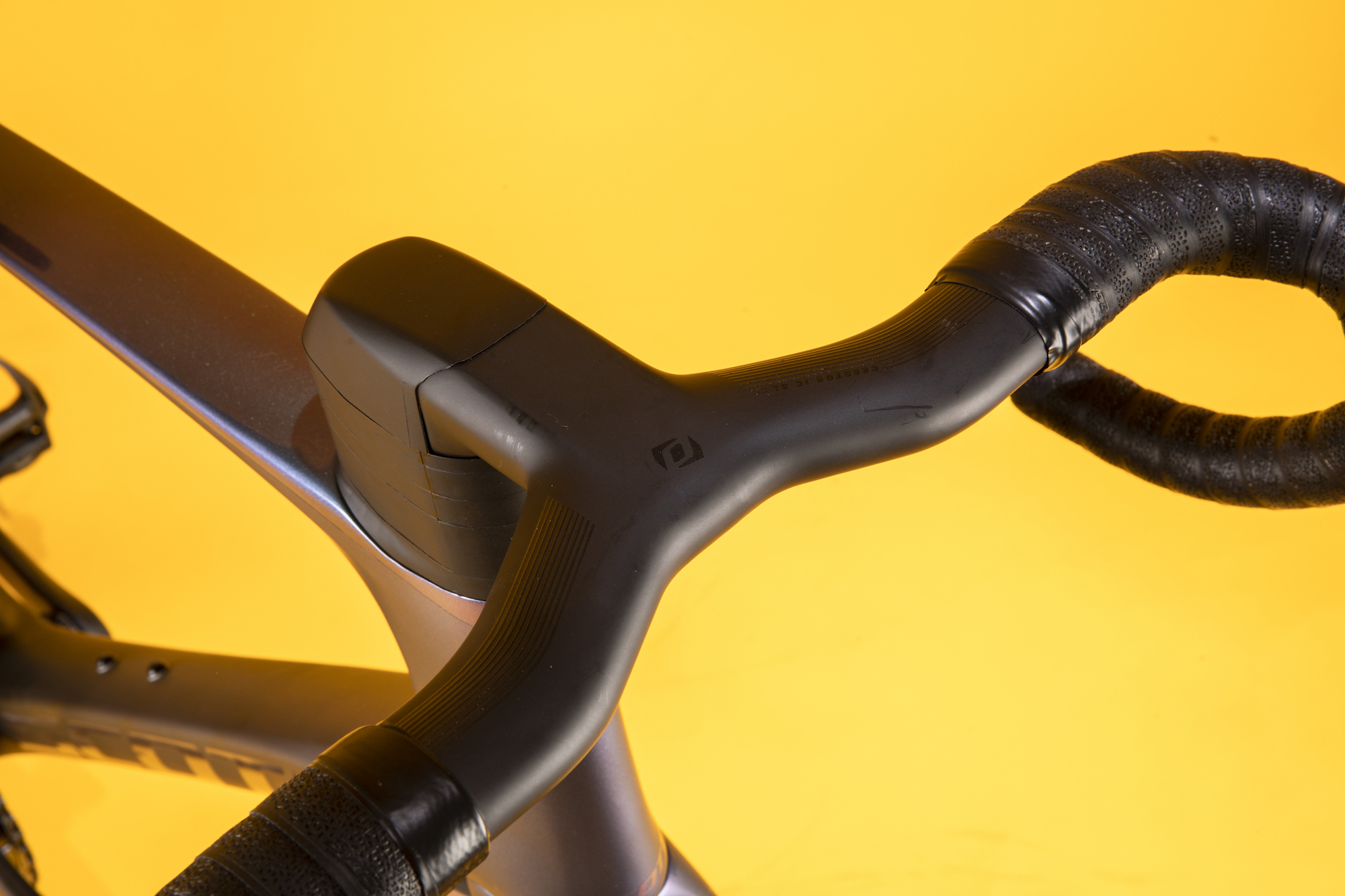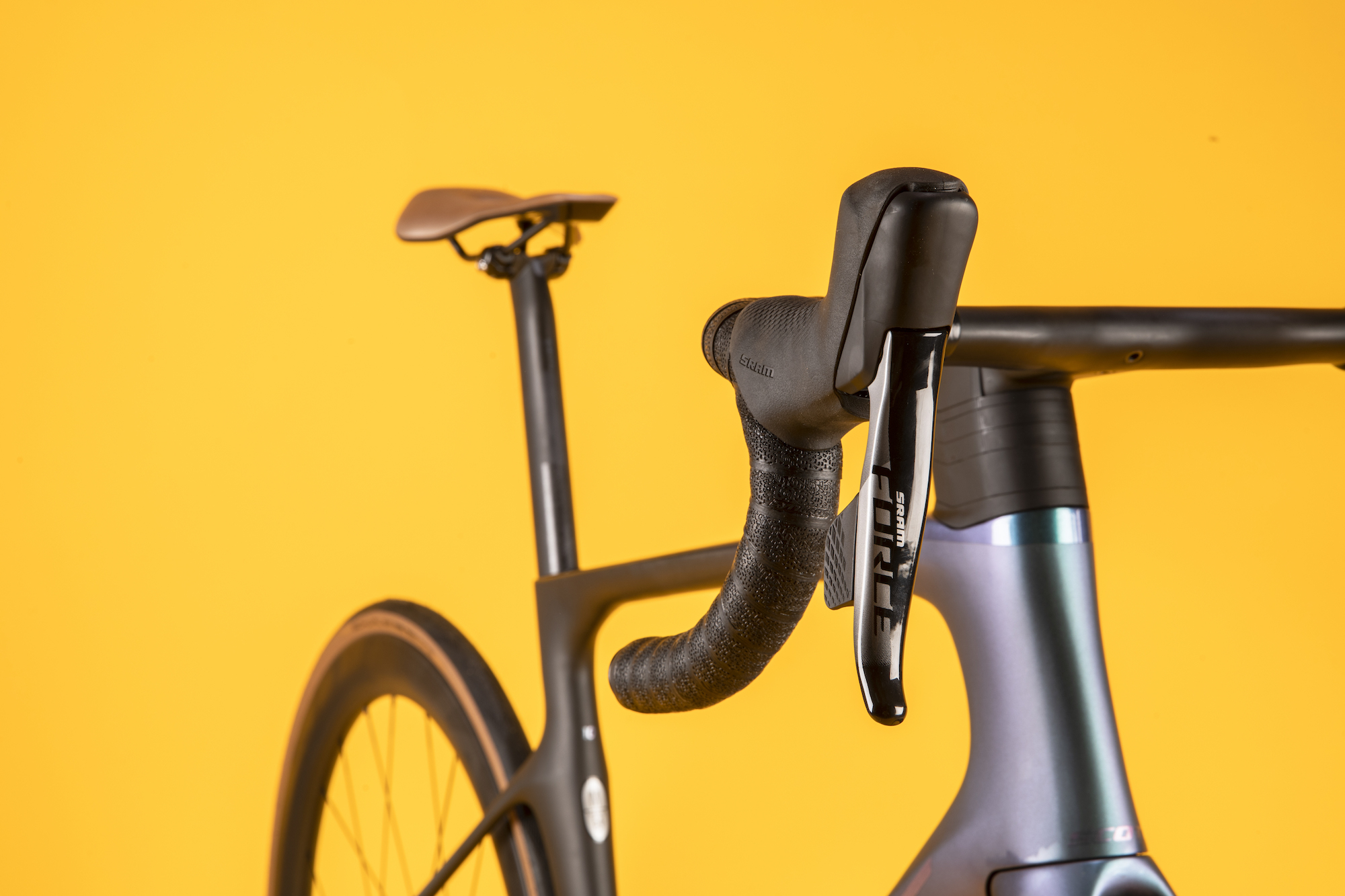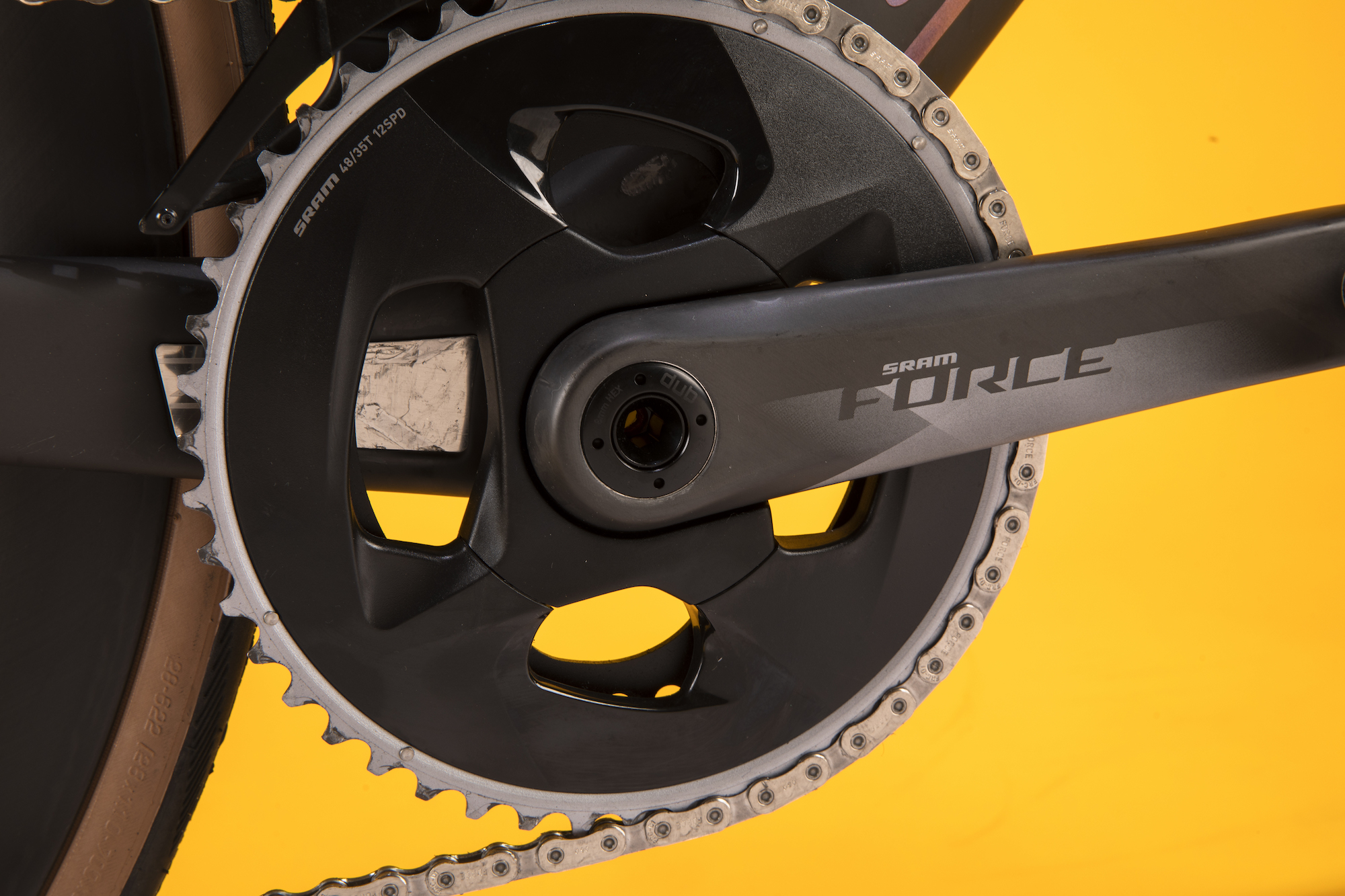Scott Foil 10 review
We put Scott's aero bike through its paces

The Scott Foil is a dream race bike that will make you excited to get out on a ride. It’s not the most comfortable, but then it is an aero race bike and that's par for the course to an extend. It climbs with grace and handles as well as any all-rounder. The improved integration via the new Syncros bar is a winner, too.
-
+
Truly rapid
-
+
Aesthetically beautiful
-
-
Not particuarly comfortable
You can trust Cycling Weekly.
The Scott Foil 10 was selected for an Editor's Choice award in 2020. This year's list contains 78 items which scored a 9 or 10/10 with our tech team - this gear is the best of the best, and has received the Cycling Weekly stamp of approval.
Scott's Foil has gained a reputation for being the 'roadman(or woman)'s aero race bike - it's optimized to be fast, but in the process hasn't lost some of the characteristics often bestowed on lightweight all-rounders.
The 2021 iteration has a new party trick of complete cable integration, made possible by the Syncros Creston iC SL Carbon combo cockpit which was first released via the Addict. In fact, the two bikes look very similar and there's definitely the beginnings of a convergence of the brand's lightweight and aero bikes.
Every time Cycling Weekly has tested a new model, we've been blown away by this bike - and this frame is near identical to the 2020 version, all that's changed is the front end. So it's no surprise that we were impressed.
Scott Foil 10: Frame

Despite its similarity to the GC bike, the Addict, the Scott Foil has all the hallmarks of an aero design: Scott's own patented aero shapes at the down tube, head tube, seat tube, seat post and seat stays - which of course are dropped. It gains a little weight in the process, our size medium came in at 7.8kg.
The bottom bracket area is chunky and ready for those all-out sprints, and of course there's the new integration via the Syncros Creston iC SL Carbon combo front end.
This bar and stem combo sweeps back into an aero design, and also promises additional comfort - whilst we don't have a windtunnel to test the former claim, the latter was something we certainly noticed coming through in the ride when comparing to the outgoing version.

The cable routing is entirely internal - so you won't be noticing any of those nasty paint-wear marks over time and of course there's the minutest of aero savings promised - plus the overall aesthetics.
The system is one we've discussed at length with local bike shop mechanics, it sees the cables run through the bar, into the headset and into the frame and of the systems out there it's not a total pig to work with (though to be clear - internal cables will always be more time consuming to replace than external, at least this decade).
Scott also includes its aero cover over the disc brake calipers - this attaches via a magnet, and we noticed on very long mountainous descents, tiny shavings of rotor actually became attached to the cover - though perhaps this was a symptom of the breaks wearing in!

Split spacers mean that front end adjustments are fairly easy, though the aero top cap means that you'll have to use a round version until you chop the steerer if you are dropping the bars.
There's space for tyres up to 30mm, which is a nice to have, though we'd currently be sticking with the specced 28mms on a bike designed for racing.
The Foil is a little higher than some competitors - a size Medium (550mm headtube) carries a stack of 547.5mm and a reach of 388.9mm. However, there's plenty of adjustment available via the spacers, so I can't see a rider seeking a long and low position having any issues there. Comparatively, a Cannondale SystemSix comes with a 540mm, a difference that could be achieved with less than a 10mm spacer. The 72.5º had angle and 987mm wheelbase make for snappy handling, more so than competitors in this aero arena.
The spec

This Scott Foil comes sporting SRAM Force eTap AXS, which in our experience has always been an excellent system - featuring nearly all the rewards of SRAM Red eTap AXS but at a more friendly price tag.
Most of the finishing kit comes from Scott's Syncros brand, including the Syncros Capital 1.0 50 disc wheels. These certainly are not a case of providing stock wheels under the expectation you will upgrade, they're fast and responsive and didn't seem to slow me down. The very same wheels feature on the higher end Scott Foil Pro bike, retailing at £8,099 - which gives you an idea where these belong on the scale.
The tyres are the excellent Schwalbe ONE Race-Guard Tires, in 28mm - and these complement the bike no end, offering comfort to the chassis as well as excellent cornering grip.
Scott has also adorned this model with the Syncros Duncan 1.0 Aero seatpost, which is d-shaped and aims to reduce road buzz, something we'd say it does very effectively considering the aero nature of the frame and balanced ride quality on offer.
The ride
The Foil is an utter dream race bike to ride. It’s fast, stiff, climbs with grace and just looks so stylish, with its metallic finish purple blue paint-job, you catch a lot of eyes on the road. When you pass it in the hall or happen to enter the garage you can't help but spare longingly at it. It makes you want to ride.
The most notable talking point on the Scott Foil is the way it manages to so elegantly balance the speed requirements of an aero bike with the cornering and climbing capabilities that come sometimes be lost in the pursuit of all out speed.
The frame and wheels together definitely upped my pace - I found myself easily setting time PBs on just about every Strava segment whenever I turned on the gas, finding myself comfortably sitting at 32Kph on a long straight stretch of road without feeling the pinch. Even on the climbs this thing is fast.
There is the obvious comfort trade-off when riding a bike this fast is the ride quality – it’s never going to be a comfortable all-day bike for those who want to relax into their ride. However, enough has been done via the extra compliance at the handlebar and seatpost, plus the addition of 28mm tyres, that it's not a bumpy ride either.
Value
Of course, the £5399 price tag is a heavy investment - but it's in line with the competition. A Trek Madone SL 7 comes with Shimano Ultegra Di2, costing £5450 whilst the Giant Propel Advanced Pro 0 disc also with Shimano Dura ace will set you back £5299 - each coming with finishing kit, including wheels, from the brand's in-house roster.

Thank you for reading 20 articles this month* Join now for unlimited access
Enjoy your first month for just £1 / $1 / €1
*Read 5 free articles per month without a subscription

Join now for unlimited access
Try first month for just £1 / $1 / €1
Get The Leadout Newsletter
The latest race content, interviews, features, reviews and expert buying guides, direct to your inbox!
-
 'It can really push me along' - How a velodrome comeback is making Caleb Ewan faster on the road
'It can really push me along' - How a velodrome comeback is making Caleb Ewan faster on the roadAustralian says he'll "definitely" continue track work after rekindling passion
By Tom Davidson Published
-
 'I've worked a lot on my sprint' - Kristen Faulkner plots unpredictability on racing return
'I've worked a lot on my sprint' - Kristen Faulkner plots unpredictability on racing returnOlympic champion looking forward to "exciting challenge" of continuing to outfox bunch
By Tom Davidson Published
-
 'This is a fresh start' - Belgian rider returns to professional cycling after two year anti-doping ban
'This is a fresh start' - Belgian rider returns to professional cycling after two year anti-doping banShari Bossuyt to ride for AG Insurance-Soudal from June
By Adam Becket Published